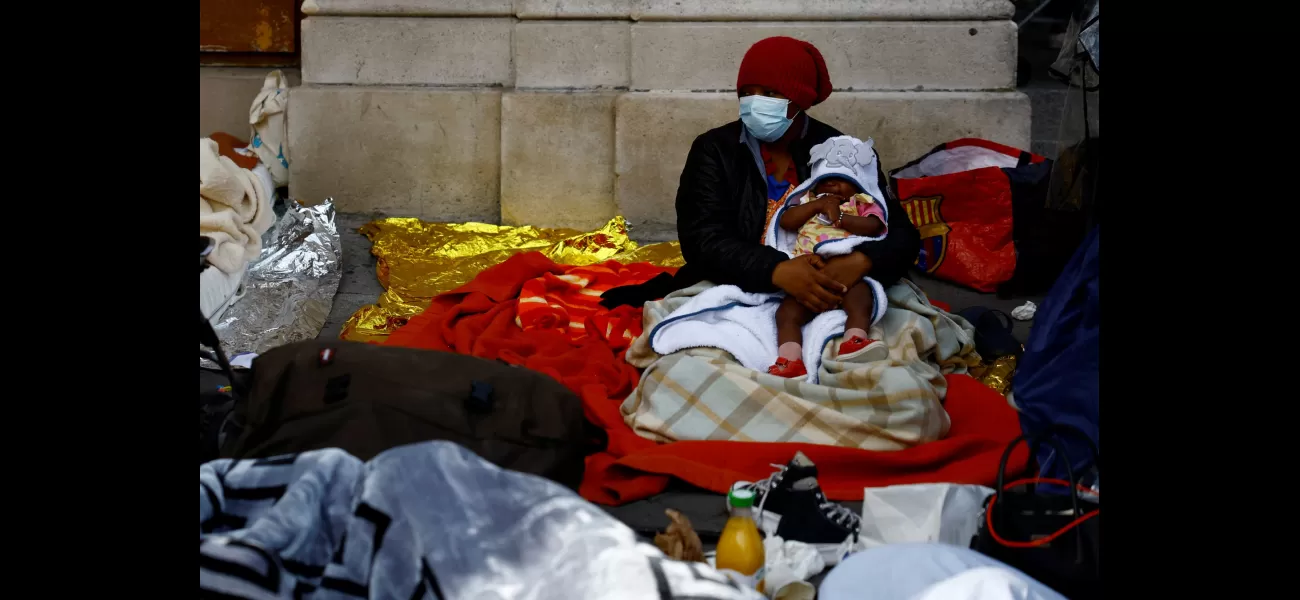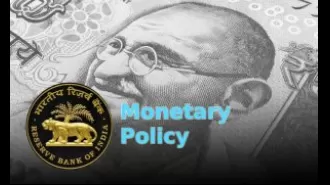Paris has removed 'undesirable' people for a $10 billion Olympics.
The disparity between the wealthy and the poor in Paris is quite noticeable.
July 26th 2024.

In the bustling city of Paris, there is a stark contrast between the wealthy and the less fortunate. As the city prepares for the highly anticipated 2024 Olympic Games, the issue of homelessness has come to the forefront. On the eve of the Opening Ceremony, the quote "Let them eat cake," attributed to Marie Antoinette during the French Revolution, seems to ring true as homeless families, who were displaced from their street camps, have set up camp in front of the city hall in the 18th district.
Amidst the excitement and grandeur of the upcoming Olympics, the plight of these families is a somber reminder of the social and economic disparities in the city. The French authorities have been criticized for their actions in what has been deemed a "social cleansing" of the capital. Migrants, squatters, and sex workers have also been targeted and evicted from their camps in the lead up to the Games. It is estimated that about 12,500 people have been left without shelter, with the fate of many remaining unknown even to charitable organizations that work with the homeless.
The Agency had the chance to speak with some of the victims of this "social cleansing" at Le Pont de Stains, an area in the northeastern suburb of Aubervilliers. Among them were Julien, 16, and Abou, 17, who had come to France from West Africa in hopes of pursuing an education. They were accompanied by Namawa, a young mother who had traveled from the Ivory Coast while pregnant, and ended up giving birth on the streets of Paris. After eight months of homelessness, Namawa was finally given temporary accommodation, but she fears that it will be taken away once the Olympics are over.
Meanwhile, in the heart of the city, President Emmanuel Macron hosted a lavish event at the Élysée Palace for some of the world's richest men. The irony of the event's slogan, "Support for the homeless," was not lost as guests such as Elon Musk and Lakshmi Mittal, with fortunes in the billions, mingled with the president, who has been dubbed "the president of the rich." This stark contrast between the wealthy and the homeless is a glaring issue that has only been exacerbated by the preparations for the Olympics.
One of the main areas targeted in the "social cleansing" was Pont de Stains, a popular spot for migrants seeking refuge. In the lead up to the Games, the French authorities evicted them and removed all their belongings. To prevent people from pitching tents there again, they replaced them with large concrete blocks topped with spikes. This same tactic was used in various encampments across Paris, leaving many without a place to call home. Some were relocated to temporary accommodation in the city, while others were sent to different cities like Marseille and Lyon, as there were not enough shelters in Paris.
The lack of a proper solution for these individuals has been a cause for concern, according to Aurelia Huot, a lawyer at the Paris Solidarity Bar. She explained that the French government has prioritized the image of the city during the Olympics over the well-being of its citizens. She pointed out that even a small percentage of the Games' budget dedicated to social issues could have made a significant impact on the lives of those affected by homelessness. The fate of these people, who have been pushed out of sight, remains unknown and concerning, as many of them have health issues that are not being addressed.
At Place de la République, a popular square for protests, activists gathered to show their support for the victims and to denounce the actions of the authorities. Various human rights groups came together for a "Counter Opening Ceremony," where they spoke about the cost of the Olympics and the impact it has had on the homeless population. Banners and signs were displayed, including one that read "The Games of Exclusion, 12,500 Evicted." Nathan Lequeux, an organizer for the activist group Utopia 56, expressed his concern that the city is being "cleaned" for the sake of tourists, while the treatment of migrants and the homeless only seems to be getting worse.
A report released by the collective Le Revers de la Médaille concluded that the Île-de-France region has been emptied of those who are deemed "undesirable" by the government. Christophe Noël Du Payrat, chief of staff of the regional government, denied these accusations and claimed that the government has been providing relocation services for years. However, the criticism remains, and the fate of those affected by the "social cleansing" remains uncertain. As the city prepares for the Olympics, the issue of homelessness continues to be a pressing concern that cannot be ignored.
Amidst the excitement and grandeur of the upcoming Olympics, the plight of these families is a somber reminder of the social and economic disparities in the city. The French authorities have been criticized for their actions in what has been deemed a "social cleansing" of the capital. Migrants, squatters, and sex workers have also been targeted and evicted from their camps in the lead up to the Games. It is estimated that about 12,500 people have been left without shelter, with the fate of many remaining unknown even to charitable organizations that work with the homeless.
The Agency had the chance to speak with some of the victims of this "social cleansing" at Le Pont de Stains, an area in the northeastern suburb of Aubervilliers. Among them were Julien, 16, and Abou, 17, who had come to France from West Africa in hopes of pursuing an education. They were accompanied by Namawa, a young mother who had traveled from the Ivory Coast while pregnant, and ended up giving birth on the streets of Paris. After eight months of homelessness, Namawa was finally given temporary accommodation, but she fears that it will be taken away once the Olympics are over.
Meanwhile, in the heart of the city, President Emmanuel Macron hosted a lavish event at the Élysée Palace for some of the world's richest men. The irony of the event's slogan, "Support for the homeless," was not lost as guests such as Elon Musk and Lakshmi Mittal, with fortunes in the billions, mingled with the president, who has been dubbed "the president of the rich." This stark contrast between the wealthy and the homeless is a glaring issue that has only been exacerbated by the preparations for the Olympics.
One of the main areas targeted in the "social cleansing" was Pont de Stains, a popular spot for migrants seeking refuge. In the lead up to the Games, the French authorities evicted them and removed all their belongings. To prevent people from pitching tents there again, they replaced them with large concrete blocks topped with spikes. This same tactic was used in various encampments across Paris, leaving many without a place to call home. Some were relocated to temporary accommodation in the city, while others were sent to different cities like Marseille and Lyon, as there were not enough shelters in Paris.
The lack of a proper solution for these individuals has been a cause for concern, according to Aurelia Huot, a lawyer at the Paris Solidarity Bar. She explained that the French government has prioritized the image of the city during the Olympics over the well-being of its citizens. She pointed out that even a small percentage of the Games' budget dedicated to social issues could have made a significant impact on the lives of those affected by homelessness. The fate of these people, who have been pushed out of sight, remains unknown and concerning, as many of them have health issues that are not being addressed.
At Place de la République, a popular square for protests, activists gathered to show their support for the victims and to denounce the actions of the authorities. Various human rights groups came together for a "Counter Opening Ceremony," where they spoke about the cost of the Olympics and the impact it has had on the homeless population. Banners and signs were displayed, including one that read "The Games of Exclusion, 12,500 Evicted." Nathan Lequeux, an organizer for the activist group Utopia 56, expressed his concern that the city is being "cleaned" for the sake of tourists, while the treatment of migrants and the homeless only seems to be getting worse.
A report released by the collective Le Revers de la Médaille concluded that the Île-de-France region has been emptied of those who are deemed "undesirable" by the government. Christophe Noël Du Payrat, chief of staff of the regional government, denied these accusations and claimed that the government has been providing relocation services for years. However, the criticism remains, and the fate of those affected by the "social cleansing" remains uncertain. As the city prepares for the Olympics, the issue of homelessness continues to be a pressing concern that cannot be ignored.
[This article has been trending online recently and has been generated with AI. Your feed is customized.]
[Generative AI is experimental.]
0
0
Submit Comment





